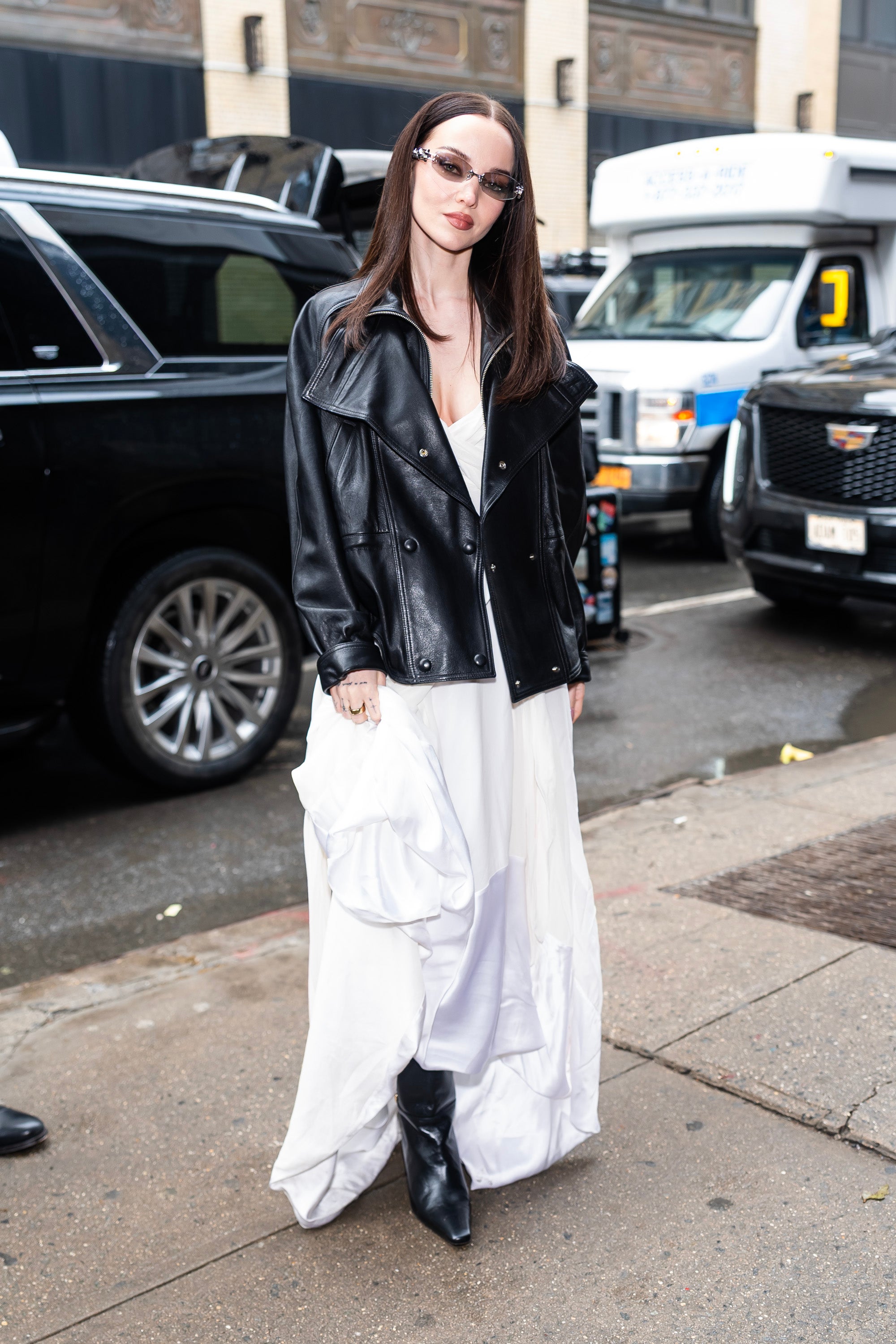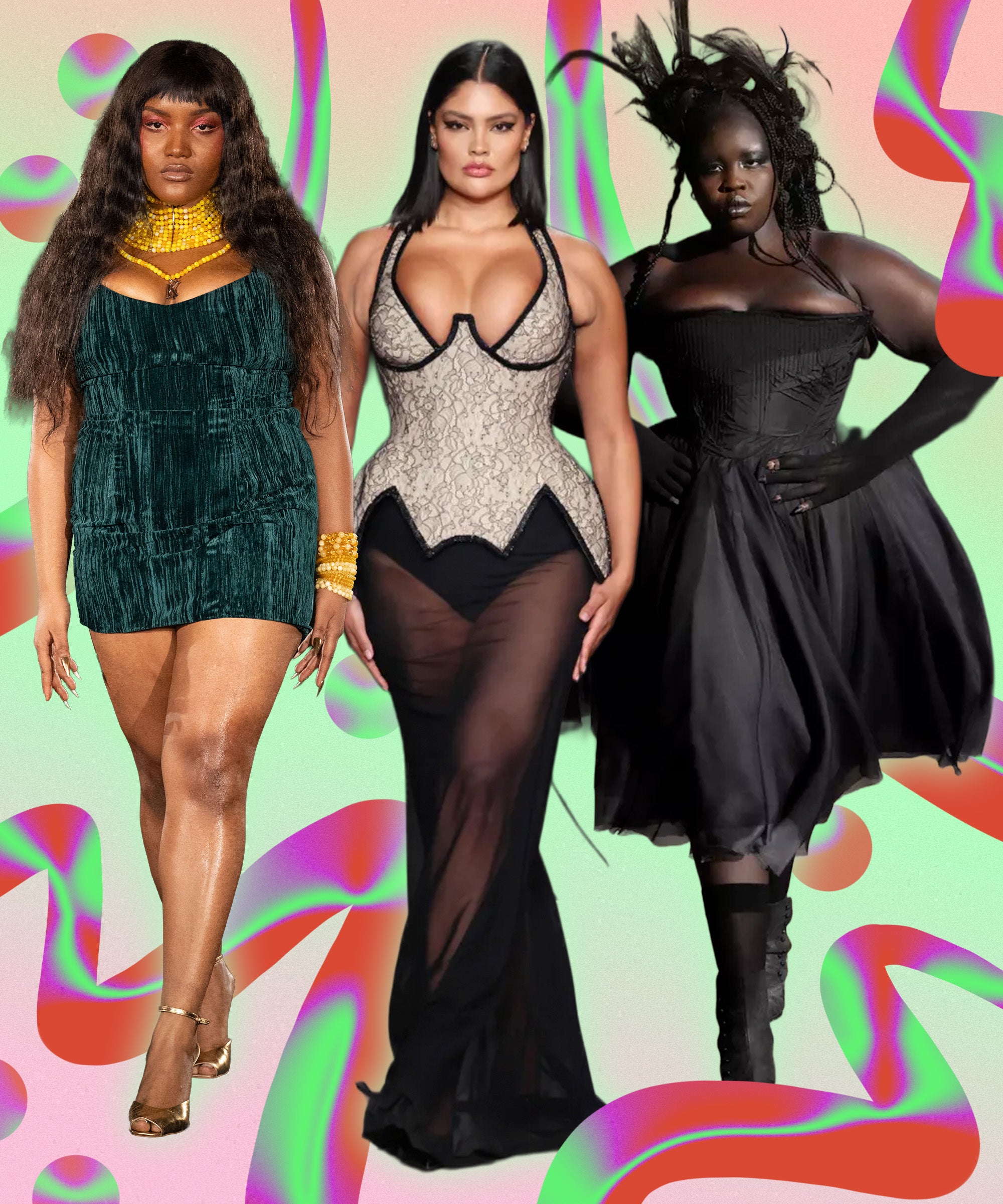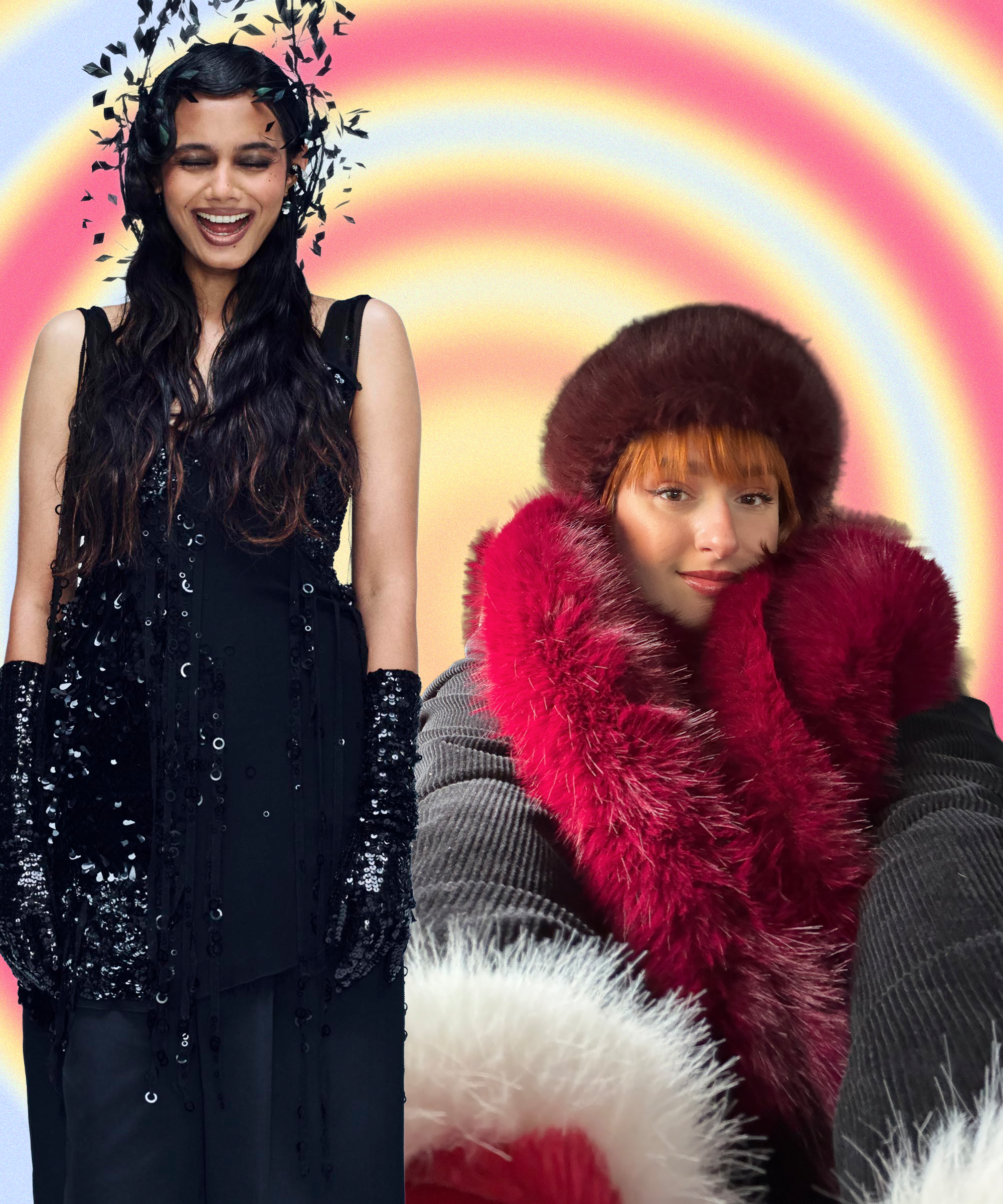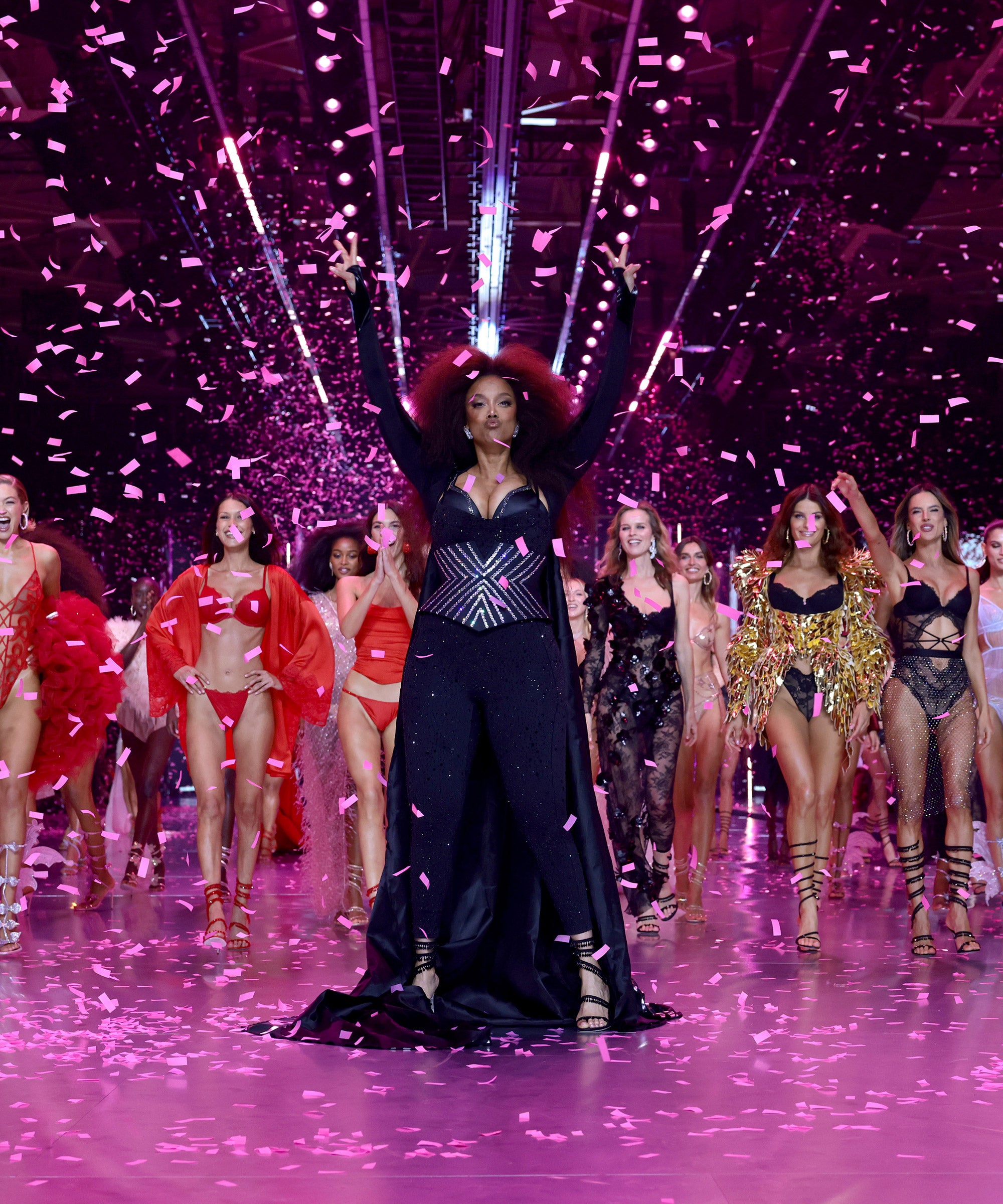
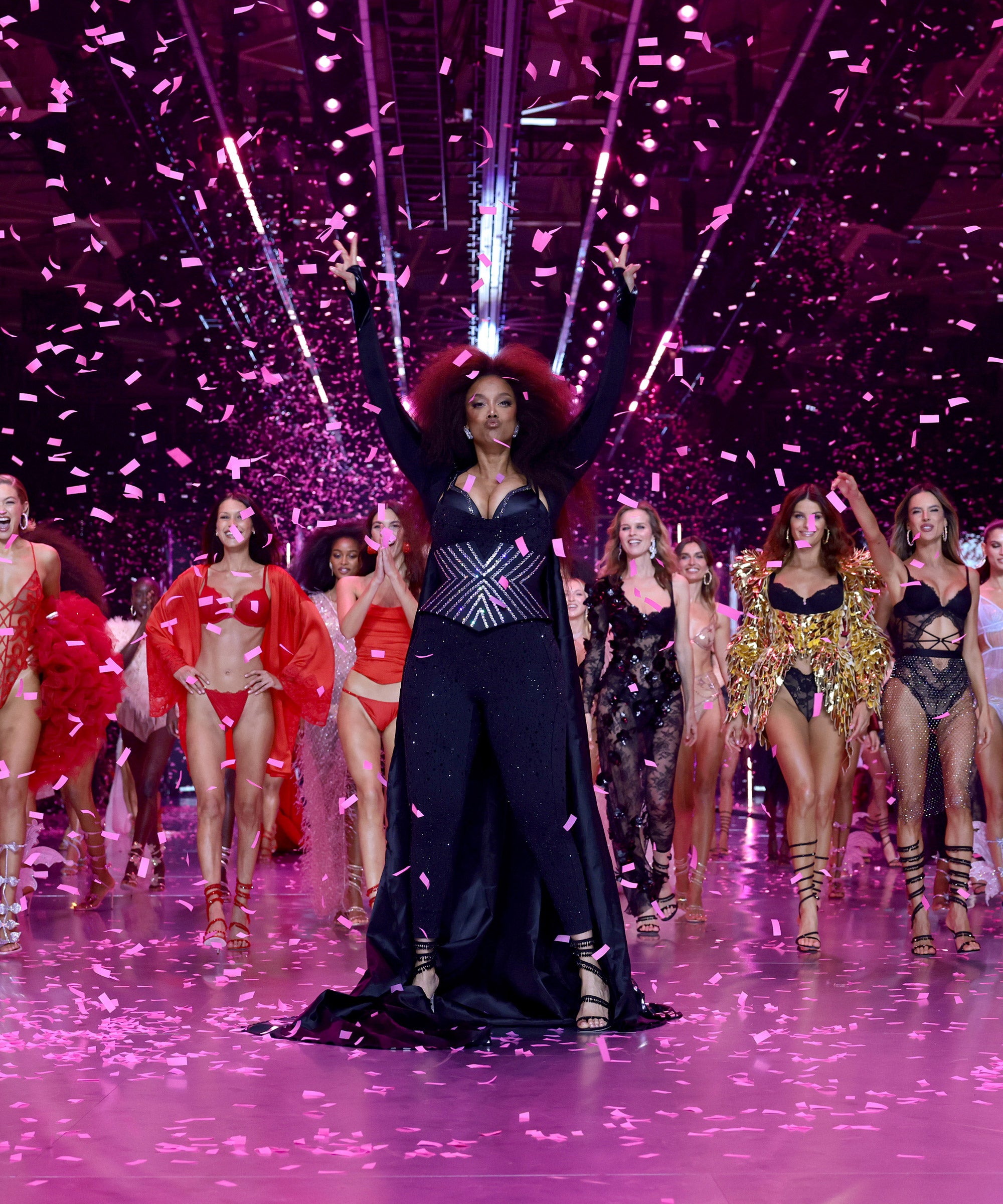
Let’s get this out of the way: The Victoria’s Secret Fashion Show is back — and it’s fun.
Going into the evening of Oct. 15, when the event was set to be streamed live on Prime Video, there was a lot of anticipation. Since the last time Angels donned their wings on the runway in 2018, Victoria’s Secret has changed hands, changed leadership, and changed direction. Whereas it was once in the business of selling one very specific, narrow ideal of “fantasy,” the intimates brand began to open up and bring more people — of different ages and body types, especially — into the mix.
The stories about the brand’s controversies (from allegations about the toxic workplace culture and criticism of its idealization of thinness), struggles (failing to catch up to conversations around inclusivity), and attempts at rebranding (getting rid of its Angels, and replacing them with a Collective) have been well documented: You can read the book, watch the documentary, listen to the podcast, or consume any of the many other forms of media on the subject. Still, its fashion show — an annual extravaganza of costumes, fantasy bras, and A-list performers that got canceled amid a slew of issues, including former marketing executive Ed Razek’s now-infamous interview with Vogue and revelations of the brand’s ties to Jeffrey Epstein, in 2019 — was never really forgotten. People still loved it, in spite of its problems which have historically ranged from cultural appropriation to lack of size diversity. And, when the brand announced it was coming back in May, they were happy to hear it.
Despite its mythos — the Victoria’s Secret Fashion Show isn’t so much an event, as it’s a pop culture entity that has catapulted unknown models to actual celebrities — there was also an expectation that the 2024 version would look different. The culture isn’t the same, and neither is the company. Whereas it had once stubbornly refused to adapt to changing values, particularly about who was excluded in its “fantasy” (see: trans and plus-size women), Victoria’s Secret couldn’t afford to do so now after making promises to be more inclusive. The question instead became: How would it look different?
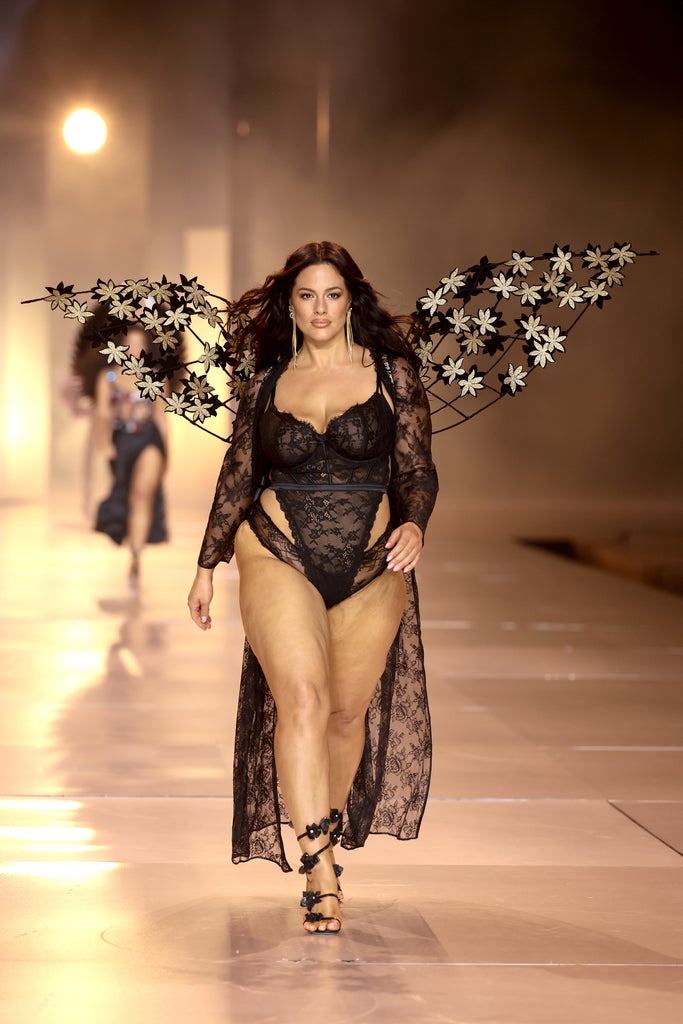
Executives weren’t made available for interviews with Refinery29, but the brand issued a statement to People back in August promising that “the 2024 Victoria’s Secret Fashion Show will deliver precisely what our customers have been asking for — the glamour, runway, fashion, fun, wings, entertainment — all through a powerful, modern lens reflecting who we are today.”
Between the announcement and show day, Victoria’s Secret gradually rolled out specifics about the event, such as performers (Cher, Tyla, and Lisa) and models (from the return of Tyra Banks, Candice Swanepoel, and Behati Prinsloo to newcomers like Paloma Elsesser and Ashley Graham, who famously called for Victoria’s Secret to diversify its runway by photoshopping a pair of wings onto a photo of herself back in 2017), making very clear that inclusion would be a big piece of the new Victoria’s Secret Fashion Show puzzle. At the same time, it leaned into certain nostalgic elements of the show: the big-city setting (the show’s locales have previously spanned Shanghai, London, and Paris), the sparkle, and, most notably, the wings. (There were pap walks outside of the model casting, a once-time-honored tradition.)
In that People statement, the show was characterized as “a women-led articulation of this iconic property,” referring specifically to the efforts of Victoria’s Secret Chief Design and Creative Officer Janie Schaffer (who worked at the brand from 2008 to 2012, then returned in 2020) and Executive Vice President of Marketing Sarah Sylvester (who’s been at the company for almost two decades). In addition to Schaffer and Sylvester, the company also has a new woman CEO as of August, Hillary Super, who joined from Savage X Fenty. It’s hard to consume this new imagining of the runway without thinking of Rihanna’s game-changing lingerie label, which Victoria’s Secret is often compared to: The 2024 Victoria’s Secret Fashion Show took place at the Brooklyn Navy Yard, the same place where Savage X Fenty staged a runway presentation in 2018; it streamed on Prime Video, where Savage X Fenty had; and the performers, including the models and dancers, represented a range of sizes, backgrounds, and ages. Of course, a lot of this is not so much borrowed as it’s now a standard way of operating in the industry — what the brand did was take that baseline and build upon it with the bits of the Victoria’s Secret Fashion Show lore that still works.
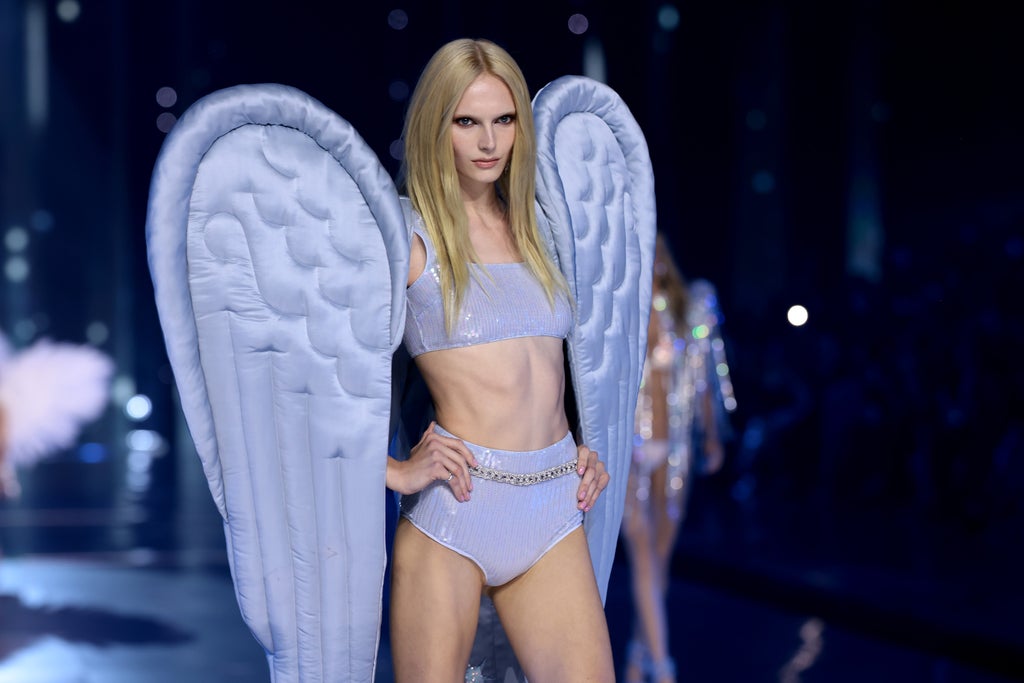
In an interview with Vogue Business published the day of the show, Schaffer said: “Our consumers are huge fans and they’re set in their ways. They want the show to come back. They want it to be what it was before. So we’ve been dancing a fine line [between]what the transformation of the brand feels like, and the expectation of everything that people used to love about the show, which was this feeling of escapism and this unadulterated glamour and wings and the runway.”
The Victoria’s Secret Fashion Show returns at a moment when fashion-tainment — fashion-as-entertainment, which the brand practically invented — is at an all-time high, especially on the runway, where there are gimmicks galore. And it pulled out all the stops, particularly when it came to surprise appearances: In addition to many beloved Angels and Victoria’s Secret Fashion Show regulars (Adriana Lima, Alessandra Ambrosio, Candice Swanepoel), Kate Moss (who followed her daughter, Lila), Carla Bruni, and Bella Hadid all walked; Alex Consani and Valentino Sampaio made history as the first trans models to appear on the runway, alongside a host of curve models, from Graham and Elsesser to Jill Kortleve and Devyn Garcia, also firsts. The new wings are a sight to behold — beaded, embellished, larger-than-life, and, in the case of Gigi Hadid’s opening look, animatronic. (Though in the room, the production felt impressive, many tuning into the livestream felt it lacked the glitz and pageantry of past years.)
For those of us who grew up watching the shows, it’s easy to be charmed by it all. In addition to looking gorgeous, the models seem genuinely stoked to be there. You get to see more of their personalities, which doesn’t usually happen in a traditional fashion show. People are cheering, which also doesn’t usually happen. In the room, you don’t just have permission to react out loud, it’s encouraged. (When Hadid emerged from underneath the stage to open the show, there were gasps.) Simply put, it’s a good time.
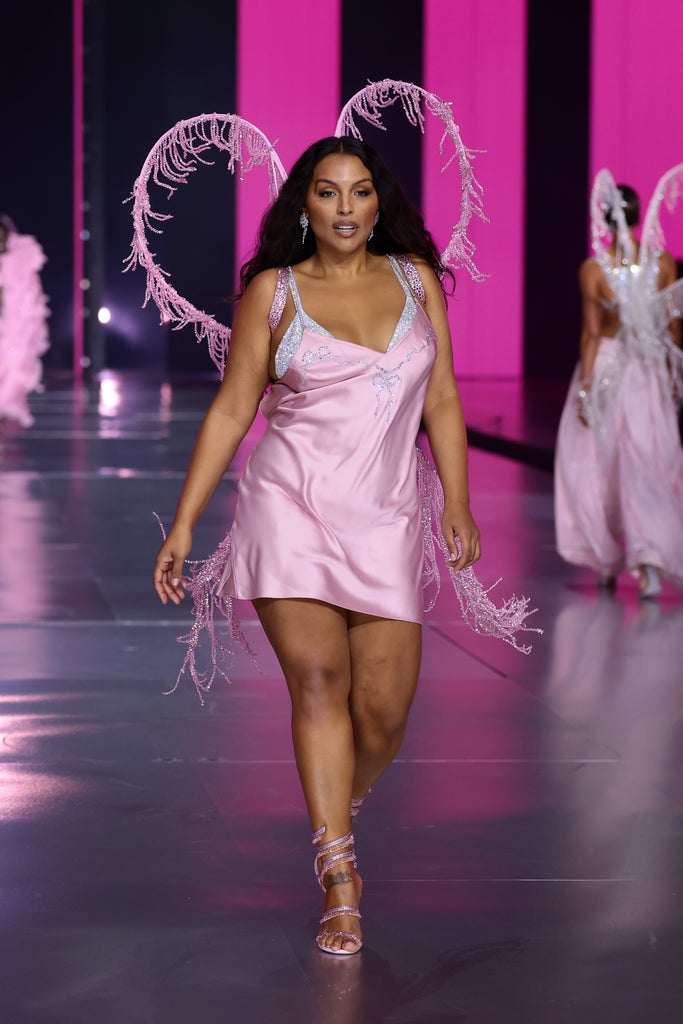
One still has to wonder about the why of it all, though. Why bring back an entity that, while nostalgic, had largely felt excluding and has so much baggage? Why not leave it in the past, and start anew? Why spend so, so much money on that? (We don’t know how much the brand shilled out for the 2024 Victoria’s Secret Fashion Show, but the event has been estimated to have cost $12 million in past years.) Yes, there’s a product tie-in that allows viewers to shop pieces from the runway right then and there (another Savage x Fenty parallel), but that alone won’t cover the production, the talent (both performing and in the front row), and the many, many promotional efforts that went into this.
Executives might see this investment as worth it just from an image revitalization perspective, which is harder to quantify — but there’s value in loudly, proudly bringing in people that had previously been excluded. This should also be reflected in the product itself, which, at the end of the day, is what this is about: selling. (Despite showing plus-size models in campaigns and on the runways, many have criticized Victoria’s Secret for its still-limited sizing, going up to an XXL in underwear and DDD bra cups in its namesake line. The brand has promised to improve on this.) It certainly felt more successful than last year’s documentary-style fashion film titled “The Tour,” which was a sort of soft launch for the return of the show: There was a clearer vision, marrying the flash of the old Victoria’s Secret with the more inclusive approach of the new Victoria’s Secret.
Sure, there’s still something to be desired — it would’ve been great to understand Joseph Altuzarra’s involvement as a new atelier-designer-in-residence, to hear from first-time models about what this represents to them, to see more from the stage design, to have even more diversity (particularly as it pertains to models with visible disabilities), and to get insight from execs themselves about the considered efforts they’re making to move the brand forward. But the 2024 Victoria’s Secret Fashion Show was promising. The brand’s clearly paying more attention, and putting a lot of resources into its big moments.
Also, it gave us Cher. We’re always happy to see Cher.
Like what you see? How about some more R29 goodness, right here?
The Complex Rise and Fall of Victoria’s Secret


